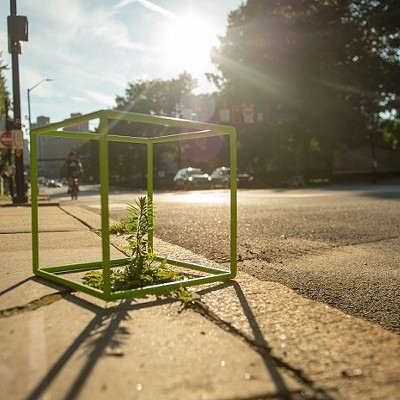Many people use bulk-buying to save on things like groceries. But quietly, since 2008, the City of Pittsburgh and other local municipalities and institutions have been bulk-buying electricity. And the approach not only saves them money; it's also growing their use of renewable energy.
The Western Pennsylvania Energy Consortium now includes 16 municipalities, from Baldwin and Millvale to Ross Township, plus Allegheny County government; the Pittsburgh Parking Authority; the Sports & Exhibition Authority; and — the biggest single energy-user by far — the Pittsburgh Water & Sewer Authority. (Pumping and treating all that water is very energy-intensive.) Other members include the Pittsburgh Zoo and Carlow University.
The WPEC currently purchases about 170 million kilowatt-hours a year at bulk rates — the equivalent of some 20,000 households. Members will save about $2 million, says the group's creator, City of Pittsburgh energy and utilities manager James Sloss. That energy is used strictly in buildings. A separate contract for street and traffic lights saves Pittsburgh another $134,000, says Sloss. (Perhaps surprisingly, the city's 41,000 street lights use more energy than its buildings do.)
Moreover, under its latest contract with Duquesne Light Energy, the WPEC gets 25 percent of its electricity from renewable sources like wind, solar and biogas — up from just 5 percent on its first contract. (Actually, because state law requires generators to include 4.5 percent renewables in their standard energy supply, the WPEC's current figure is more like 30 percent.)
Sloss says that more than 80 percent of the WPEC's renewable component comes from wind farms. "We want to be a leader in the area in renewables," says Sloss.
WPEC members save 15 percent or more on their electric bills. For instance, Wilkinsburg saves nearly $10,000 a year, says borough manager Marla Marcinko. Without the premium for 25 percent renewables — which adds a few hundredths of a cent per kilowatt hour — those savings might be a few hundred dollars greater. But, says Marcinko, "There's a definite feeling ... that it's really the right thing to do, despite the fact that it's a little bit more expensive."
The WPEC saved the City of Pittsburgh $375,000 last year. It's a big part of the city's larger sustainability effort: The Office of Sustainability & Energy Efficiency spearheads projects that saved the city about $1.3 million, says Sloss. Much of the savings came from conservation measures like replacing old boilers, insulating steam lines and installing motion-sensor lights in offices. The historically low price of natural gas also helps, driving down electric rates as well as heating bills.
Bottom line: Pittsburgh's energy budget, which was $7.5 million in 2007, is still $7.5 million. It was in 2007 that Sloss — a graduate of the University of Pittsburgh's Graduate School of Public and International Affairs who'd worked in city government since the Murphy administration — created both the WPEC and the sustainability office. All the savings replenish a "green trust fund" that Sloss' office spends on more sustainability projects. The big current initiative is the retrofit that by year's end will have converted a third of the city's streetlights to LEDs (which are pricey but last longer and use less energy than traditional lamps). All of this will help the city pursue its goal to reduce its carbon emissions by 20 percent by 2023.
Following electricity deregulation in Pennsylvania, even residential customers can choose to buy their electrons from renewable sources. But Cliff Blashford, president of DLE (a Duquesne Light sister company that supplies energy to businesses regionally), says that very few big power customers seek out renewables as the WPEC has done — only about 1 in 20 of DLE's customers, for instance.
The WPEC, meanwhile, has been nationally recognized, receiving a 2009 Green Power Leadership Award from the U.S. Environmental Protection Agency. It isn't the only municipal buyers' group pursuing renewable energy: A similar consortium in Montgomery County, Md., dates to 2004. But such groups "aren't very common, and the WPEC is still a leader in this area," writes Mollie Lemon, of the EPA's Green Power Partnership, in an email.
Why don't more towns try group buys? Fear of change, Sloss thinks. But the WPEC is always seeking new members — the more the merrier.














